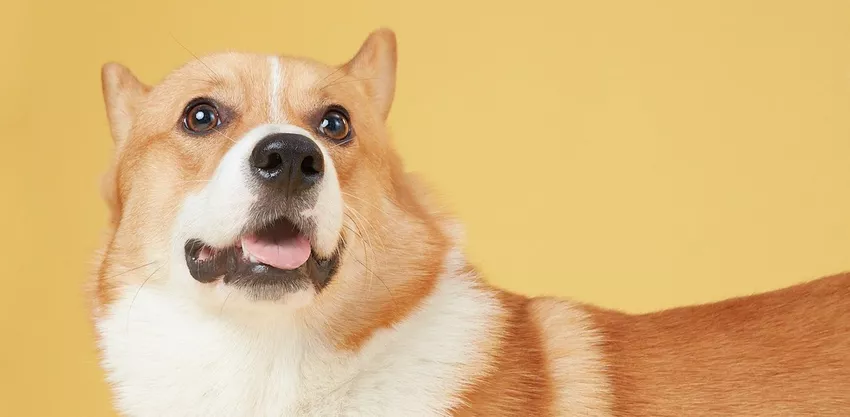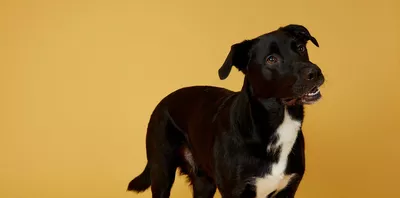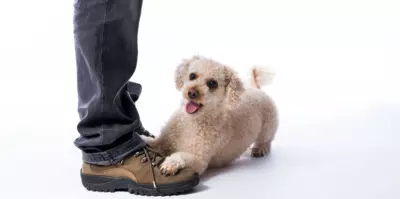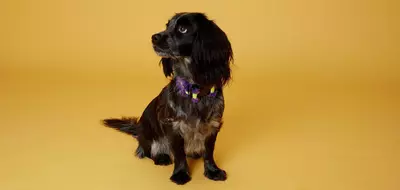Why Do Dogs Eat Poop?
- 23 Mar 2023
- 6m read

Eating poop, otherwise known as coprophagia (every days a stool day), is a relatively common behaviour in dogs. That being said, you should still be mindful of the negative implications that it can have on your pooch.
Why Do Dogs Eat Their Own Poo?
Coprophagia can be really worrying for pooch parents. The first step to curbing the behaviour is determining exactly what is causing it. This can be due to a number of different issues, including medical, behavioural, and nutritional.
Medical reasons
Certain medical conditions can cause dogs to eat poop, so it is essential to first rule out any underlying medical conditions. Some of the medical causes of coprophagia in dogs include:
Pancreatic insufficiency
Dogs with pancreatic insufficiency have difficulty breaking down food, which can cause them to seek out other sources of nutrition, such as poop. Pancreas issues can be managed with appropriate diet and medication.
Parasites
Parasites can cause diarrhoea, which can make the dog's faeces more appealing to them. They will also take nutrients from your dog's body, in turn making them more susceptible to seeking out nutrients elsewhere.
Malabsorption syndrome
Malabsorption syndrome is a condition where the dog is not able to absorb the nutrients from their food. This can cause them to look for alternative sources of nutrition, such as poop.
Nutritional deficiencies
Dogs may eat poop if they are not getting the proper nutrition from their diets. A lack of essential nutrients, such as protein, can cause dogs to seek out alternative sources of nutrition.
Behavioural reasons
Behavioural problems often cause dogs to eat poop, some of these include:
Boredom
If a dog is not getting enough mental and physical stimulation, they may develop the habit of eating poop out of boredom. An odd choice we must say, whatever happened to the good old fashioned chewing of shoes.
Attention
Dogs may also eat poop to get attention from their humans. If the dog is not getting enough attention, they may engage in unpleasant behaviour to get attention. Make sure that your pup is getting all the love that they deserve (and then a little more).
Stress and anxiety
Dogs that are stressed or anxious may develop the habit of eating poop as a coping mechanism.
Nutritional reasons
Nutritional deficiencies can also be a cause of dogs eating poop. If a dog is not getting the proper nutrition from their diet, they may seek out other sources of nutrition, such as poop. Some of the nutritional causes of coprophagia in dogs include:
Nutrient-deficient diet
If a dog is not getting the proper nutrients from their diet, they may develop the habit of eating poop to supplement their diet.
Fibre-deficient diet
Dogs that are fed a diet that is too low in fibre may have difficulty digesting their food properly, leading to a build-up of undigested matter in their faeces that they may find appealing to eat. Some fibre-rich ingredients to look out for include lentils and pearl barley, as well as fruit and veg.
Why Does My Dog Eat Other Dogs' Poo?
For the same reasons that they might eat their own poo, some dogs will happily chow down on other pooch’s poo. This is why it’s extremely important to pick up and dispose of your dog’s poop, to prevent dogs and other animals from eating it.
This most commonly happens when out and about on daily walks. Remaining vigilant whilst walking your dog will help to prevent them from eating poop. Lightning reflexes are essential here, don’t be fooled by any lumps of poo that may be posing as rocks.
You should closely monitor your dog if they have eaten another dog’s poop. Chances are, if they’re up to date on their vaccinations, they will be absolutely fine. However, other dogs’ poo can carry infections such as canine parvovirus which can be fatal, especially to puppies.
How to Stop Dogs Eating Poo
Preventing coprophagia requires tackling a few different areas. Here are some steps you can take to prevent chronic poop consumption.
Check for any underlying medical conditions
It is important to rule out any underlying medical issues. By scheduling a visit to your vet, you can have your dog examined for any medical conditions that could be causing them to eat poop.
Ensure your dog is on a nutritious diet
A well-balanced diet that meets your dog's individual nutritional needs is an essential part of stopping them from eating poop. If there are deficiencies in your dog's diet, they will naturally seek out other things to quash their appetite.
Ensure to feed your dog high-quality food that is appropriate for their age, breed, and activity level. Consult with your vet if you have any questions about the best diet for your dog, or alternatively the team here at Butternut Box.
Provide your dog with enough exercise and mental stimulation
Dogs that are bored or lacking in mental and physical stimulation may develop the habit of eating poop out of boredom. Make sure your dog is getting enough exercise and playtime to keep them mentally stimulated and active. Try bringing a ball or similar toy with you on a walk to keep your pup distracted.
Train your dog to stop eating poop
Training your dog to stop eating poop may take some time, but it can be an effective way to prevent the behaviour. Here are some tips for training your dog to stop eating poop:
Teach the "leave it" command
This can be used to redirect your dog's attention away from poop. Be prepared to see them enter freeze mode.
Keep your dog on a lead
When walking your dog, keeping them on a lead can help to prevent them from getting close to an unwanted snack. Keep them out of the poop loop.
Immediately clean up after your dog
Be sure to pick up your dog's poop as soon as they finish and dispose of it properly.
Add supplements to your dog's diet
This will help to ensure that they are getting the extra support that they need to get their daily required nutrients. It will also help to support their digestive system. Probiotics, for example, can help improve the balance of bacteria in your dog's gut, which can help prevent the need to hunt for poop.
If you are still struggling to stop your dog from eating poop, you should consult your vet or a specialist dog behaviourist.




.png)